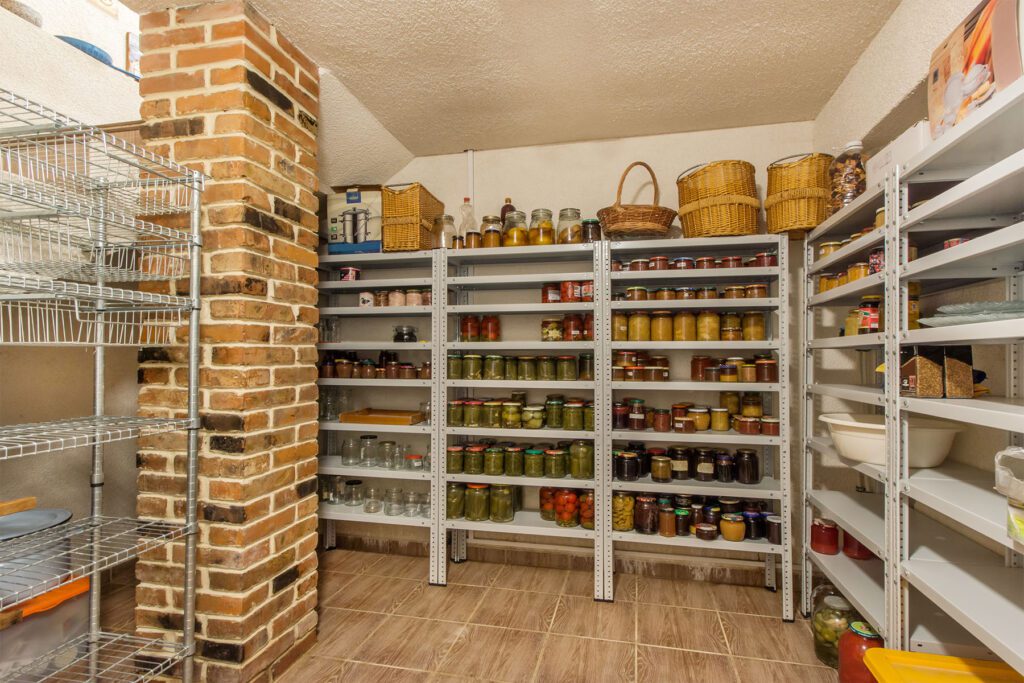
Introduction
Storing food for long periods, of a year or more, is gaining in popularity among the residential sector. Between the uncertainty associated with living through a pandemic and the financial benefits of stocking up, long-term food storage just makes sense. People are able to store canned goods, freeze-dried foods, bulk items, and even wheat in the same space. However, homeowners should be aware of several factors that have the potential to jeopardize the success of long-term food storage.
Factors in Long-Term Food Storage
1. The most important element of storing food is putting it in the right place under proper conditions. The cooler the temperatures the longer the food will last. Ideal temperatures vary a bit depending upon personal preference and who one asks. Generally speaking, optimal temperatures fall between 40-60℉ (4-15℃). Since sunlight causes temperatures to rise, darkness is critical to maintaining a stable environment. Humidity control is also a factor for long-term storage because moisture will cause cans to oxidize and certain grains to sprout. Moreover, mildew can penetrate certain food containers and cause spoilage.
Since most of us keep our homes set well above recommended food storage temperatures, a climate control system like the Wine Guardian Pro Series can mimic ideal conditions in a way comfort cooling units (regular AC systems) were not designed to achieve.
2. It is also helpful to know which foods store better than others. For example, honey, salt, sugar and hermetically sealed whole wheat grains can last for decades if not centuries. Dried beans, oats, and pasta have a shelf life of up to 30 years if they are properly packaged. Since bulk items are more sensitive to changes in temperature and humidity, they will only last a few years. Whatever one decides to store, the food must be tightly sealed.
3. Properly organizing and rotating food is essential to long-term food storage. The goal is to reach for items according to the expiration date and shelf life.
Whether you are storing food for emergency preparedness or to save money, a successful plan depends upon a robust cooling system to keep your food safe and nutritious over the long haul. Considering the potential for damage to your food and investment, a commercial-grade cooling system is appropriate even for residential applications.
Appropriate Cooling Solution
Finally, do not forget that a commercial-grade cooling unit is not the same as a conventional AC or refrigerator. It requires professional installation and maintenance to ensure that the unit will function optimally. Annual tune-ups and cleanings will also prevent costly repairs and, ultimately, food waste.
Wine Guardian Pro units are designed to maintain pristine climate control and are ideal for the long-term preservation of food. The Pro Series units come in several capacities and configurations to accommodate any size cold food pantry.

